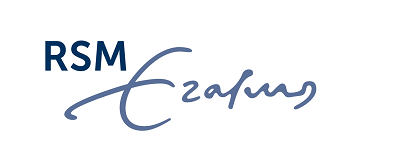- Leadership
Nordic Leadership Expedition
Hannes Leroy, associate professor at Rotterdam School of Management, Erasmus University (RSM), describes a leadership development experience that is a force for positive change
The Nordic Leadership Expeditions run by Rotterdam School of Management, Erasmus University (RSM) offer evidence-based executive development of a high order. They include a profound personal development element that relates back to each participant’s organizational leadership role, whilst including the life-enhancing physical and mental aspects of traditional outward-bound leadership programs.
 Although typically ‘Nordic’, RSM’s week-long programs have been run in Patagonia, Greenland and other, usually cold, challenging places. Participants can be young executives, first-time leaders wanting to discover their true leadership potential, or they can be senior leaders, well used to assessment, who use the expedition, as Dr Hannes Leroy the program leader says, “to give themselves perspective, to help their strategic thinking and future-decision making.”
Although typically ‘Nordic’, RSM’s week-long programs have been run in Patagonia, Greenland and other, usually cold, challenging places. Participants can be young executives, first-time leaders wanting to discover their true leadership potential, or they can be senior leaders, well used to assessment, who use the expedition, as Dr Hannes Leroy the program leader says, “to give themselves perspective, to help their strategic thinking and future-decision making.”
An outdoor leadership challenge for mental resilience
Essentially, the expedition is an outdoor leadership challenge combined with intensive coaching by leadership experts, aimed at developing participants’ deep awareness of their strengths and limitations as leaders; where the intense physical and emotional experience, the natural solitude of the landscape, and insight from coaches enables them to understand their leadership capacities, experiment with taking the lead, and find ways to improve.
One might assume that very fit people with plenty of outdoors experience thrive and confirm their leadership prowess, whereas physically weaker, less experienced people become only too aware of their limitations and lose confidence. “Not so,” says Leroy. “If anything, the opposite can be true. We have seen tri-athletes, physically in great shape, crumble when confronted with sleeping rough in the cold. Whereas less experienced people have excelled. It’s about mental resilience not physical.” But note that crumbling is not necessarily a bad thing: it can provide an opportunity to build up new sources of resilience.
There is nothing technically difficult on the program. If you can walk (albeit with a backpack) and don’t have a heart condition, you can do it. The key point is that it is an ‘expedition’ – over seven days. While a certified outdoor instructor and leadership coach accompany them on this trip, the idea is that participants themselves navigate the terrain; perhaps sometimes walking in the wrong direction for two days (though closely monitored).
How aspects of leadership are strengthened
Navigating from point A to B (in a limited timeframe and while competing with other teams), gives rise to various leadership challenges: miscommunication, lack of trust, leadership styles ill-fitting to the situation or group of individuals – problems that are magnified by the physical and emotional challenge of the expedition.
…………………………………………………………………………………………………………………
Join Hannes Leroy on a Nordic Leadership Expedition – learn more here
…………………………………………………………………………………………………………………..
As an action-oriented leadership challenge, the program can clearly strengthen one’s ability to ‘think on one’s feet’ – but how can it help the aspects of leadership that require reflection and deep strategic thinking?
“There is nothing like the quiet of walking on your own in Norway to help you reflect and think deeply,” says Leroy. “The program definitely gives you the strength of character to deal with issues in the moment. But beyond that strategic thinking happens because, it’s not just about your own mental state it’s about the mental state of all the team – developing strategies to lead over several days, dealing with predicted snowstorms, for example, and making sure everyone is motivated.”
The idea of ‘mindfulness’ doesn’t appeal to everyone. Yet its benefits are well-proven. The great thing about the expedition, observes Leroy “is that mindfulness happens naturally, by accident. Eating after a hard day’s walking, observing wildlife – moments of mindfulness are in everything we do.” The instructors only lightly point this out, just explaining the basic principles of mindfulness. The value here, says Leroy, is that “back in the workplace, in a hectic environment, feelings of mindfulness rooted in the expedition can be used to transport you back and boost your resilience.”
The key development objectives of the program
Crucially the program allows participants to relate to or discuss specific challenges they face at work and in their careers. “While many outward-bound courses focus on adventure activities, the RSM program is full-on development work,” says Leroy. “It’s one big assessment. With coaches spending four to six hours with each participant going over their ‘leadership compass’.”
The key development objectives of the program are for participants to:
- Learn how to lead without subject-matter-expertise. Many of them have never been in this particular situation but they will nevertheless be asked to lead the expedition and to focus on the human side of leadership.
- Develop self-awareness of their strengths but especially of their own limitations as a leader. The extreme outdoor, physically and emotionally demanding context can reveal dysfunctional behavioural patterns and encourage participants to experiment with new behaviour.
- Experience how mindfulness, by stepping completely out of your normal life for seven days, with no access to internet or mobile phones, in wild nature, can help improve your decision-making.
- Finally, the outdoor environment allows many opportunities to talk and really connect with others. Instructors use this as an opportunity for intense coaching and gradually, over the week, to teach participants to coach each other.
Key benefits of the program
During the program participants enter a leadership assessment and development exercise unlike anything they will have encountered before – enjoying deep conversation with coaches to assess their strengths and weaknesses.
While using an actual compass to navigate the wilderness, they will also learn to navigate leadership challenges using the RSM-leadership compass – a tool based on recent academic and practical insights about what constitutes effective leadership.
Mental and physical health are enhanced through the seven day intense expedition and by personal coaching received from the instructors in preparation for the expedition. The result is an increased resilience that helps participants navigate more easily the stresses of daily life.
Courage as the ultimate purpose
On the final day of the expedition – to demonstrate the outcome of their reflection, deep thinking and learning – participants are encouraged to proclaim their vision for change in the future, from at the top of a Fjord. The purpose of the expedition has been to clarify this vision through self-reflection and personal coaching, to develop the inter-personal skills that can make the vision become reality, and to give people the courage to actually implement the vision through the changes it will require.
Feedback from program participants has been extremely positive, and this is not just due to their sense of relief at having survived, or post-adventure euphoria. It’s positive because it has improved them as leaders. Courage is a key outcome. “All of the participants say the expedition has given them courage,” says Leroy. “An expedition is not an ordinary experience. It doesn’t just provide a generalized sense of self-efficacy, it gives people the courage to take a leadership role in everything they do. To say ‘Whatever I set my mind on, I can do’.”
One of Europe’s leading business schools, and ranked among the top three for research, RSM provides ground-breaking research and education furthering excellence in all aspects of management.
ARTICLES YOU MIGHT LIKE
RESEARCH
A recent study examines shared leadership configurations and their effectiveness in teams
DEVELOPING LEADERS QUARTERLY MAGAZINE AND WEEKLY BRIEFING EMAILS


































